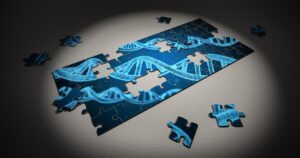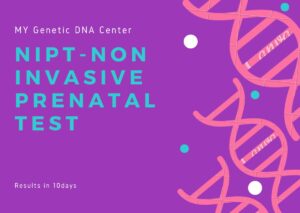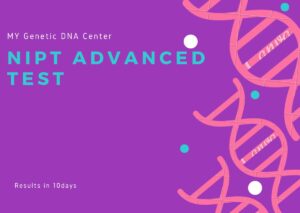Introduction to Sperm DNA fragmentation:
A sperm DNA fragmentation test is a specialized laboratory analysis that evaluates the integrity of the genetic material within sperm cells by measuring the extent of DNA damage or breaks in the sperm’s DNA strands. Unlike conventional semen analysis, which focuses on sperm count, motility, and shape, this test specifically assesses the quality of the sperm’s genetic content, which plays a crucial role in fertilization and embryo development.
DNA fragmentation can negatively impact male fertility by reducing the chances of successful conception, increasing the risk of miscarriage, and lowering the success rates of assisted reproductive technologies such as in vitro fertilization (IVF) or intracytoplasmic sperm injection (ICSI). The test is particularly valuable for men who experience unexplained infertility, recurrent pregnancy loss, or repeated failures with fertility treatments despite having otherwise normal semen parameters. By providing insight into the molecular health of sperm, the sperm DNA fragmentation test helps healthcare providers identify underlying issues and tailor appropriate treatment plans to improve fertility outcomes.
Why is Sperm DNA Fragmentation Important?
DNA fragmentation in sperm can lead to decreased fertilization rates, poor embryo quality, increased risk of miscarriage, and may contribute to infertility even when other semen parameters appear normal. Damage to sperm DNA can occur due to oxidative stress, infections, environmental toxins, smoking, advanced paternal age, varicocele, exposure to radiation, and certain lifestyle factors such as poor diet and excessive alcohol consumption.
Why is sperm DNA fragmentation important for fertility?
Who Should Consider Sperm DNA Fragmentation Test?
Men experiencing fertility challenges should consider undergoing a sperm DNA fragmentation test, especially when traditional semen analyses fail to explain the cause of infertility. This test is particularly useful for couples facing unexplained infertility, where routine evaluations of sperm count, motility, and morphology appear normal but conception remains elusive. It is also recommended for men whose partners have experienced recurrent miscarriages, as high levels of DNA damage in sperm can contribute to pregnancy loss.
Additionally, men who have undergone unsuccessful assisted reproductive techniques like in vitro fertilization (IVF) or intracytoplasmic sperm injection (ICSI) may benefit from this test to identify underlying genetic issues affecting sperm quality. Certain lifestyle factors and medical conditions—such as smoking, excessive alcohol use, exposure to environmental toxins, infections, varicocele, or advanced age—can increase sperm DNA fragmentation, making testing advisable in these situations as well. By detecting DNA damage, the test provides critical insights that help doctors tailor treatment plans and recommend lifestyle changes, improving the chances of successful conception and a healthy pregnancy.
How is the Sperm DNA Fragmentation Test Performed?
Technicians perform the sperm DNA fragmentation test by first collecting a semen sample, typically obtained through masturbation after the patient abstains for two to five days to ensure optimal sperm concentration. Once collected, the sample is sent to a specialized laboratory where various techniques are employed to assess the extent of DNA damage within the sperm cells. Common methods include the TUNEL assay, sperm chromatin structure assay (SCSA), and comet assay, each using different biochemical or imaging approaches to detect and quantify breaks or abnormalities in the DNA strands.
The test stains or labels damaged DNA to visualize and measure it under a microscope or by flow cytometry. Technicians usually express results as the percentage of sperm with fragmented DNA, helping clinicians assess the severity of DNA damage. The entire process requires careful handling and precise laboratory procedures to ensure accuracy and reliability. After analyzing the sample, the laboratory reports the results to the healthcare provider, who interprets them within the patient’s overall fertility evaluation and recommends suitable treatment or lifestyle changes based on the findings.
What do high levels of DNA fragmentation mean?
High levels of sperm DNA fragmentation indicate significant damage to the genetic material within sperm cells, which can negatively affect fertility. This damage may reduce the sperm’s ability to fertilize an egg properly, lower embryo quality, and increase the risk of miscarriage or failed implantation. Elevated DNA fragmentation often contributes to unexplained infertility and can reduce the success rates of assisted reproductive techniques like IVF or ICSI. Identifying high fragmentation levels helps healthcare providers understand underlying fertility issues and develop targeted treatments to improve reproductive outcomes.
Can sperm DNA fragmentation affect pregnancy outcomes?
Yes, sperm DNA fragmentation can significantly affect pregnancy outcomes. High levels of DNA damage in sperm may lead to difficulties with fertilization, poor embryo development, and an increased risk of miscarriage. Even when fertilization occurs, embryos created from sperm with fragmented DNA may have a lower chance of successful implantation and healthy growth. This can result in repeated pregnancy loss or failure of assisted reproductive treatments like IVF. Assessing sperm DNA fragmentation helps identify these risks and guide appropriate interventions to improve pregnancy success rates.
What causes increased sperm DNA fragmentation?
Increased sperm DNA fragmentation can result from various factors that damage the genetic material within sperm cells. Oxidative stress, caused by an imbalance between harmful free radicals and antioxidants, is a primary contributor. Lifestyle choices such as smoking, excessive alcohol consumption, poor diet, and exposure to environmental toxins or radiation also elevate DNA damage. Medical conditions like infections, varicocele (enlarged veins in the scrotum), and advanced paternal age can further increase fragmentation levels. Additionally, certain medications and prolonged exposure to heat may negatively impact sperm DNA integrity. Identifying and addressing these causes is crucial for improving male fertility.
How can this test be treated or managed?
Sperm DNA fragmentation can be managed through a combination of lifestyle changes, medical treatments, and assisted reproductive techniques. Improving diet, quitting smoking, reducing alcohol intake, and minimizing exposure to environmental toxins can help lower oxidative stress, a major cause of DNA damage. Antioxidant supplements may also support sperm health by neutralizing free radicals. Treating underlying medical conditions like infections or varicocele can further reduce fragmentation. Doctors may recommend advanced reproductive methods, such as sperm selection techniques during IVF or using donor sperm, to improve the chances of a healthy pregnancy when natural conception remains difficult.
How accurate is this test?
Does the test require special preparation?
Yes, the sperm DNA fragmentation test requires specific preparation to ensure accurate and reliable results. Before providing a semen sample, men are generally advised to abstain from ejaculation for two to five days. This period of sexual abstinence helps achieve an optimal sperm concentration and quality, which is essential for a precise assessment of DNA fragmentation.
Additionally, men should avoid factors that can temporarily affect sperm health, such as fever, excessive alcohol consumption, smoking, and exposure to heat or environmental toxins. Healthcare providers also recommend avoiding medications or activities that might affect sperm quality before the test. Following these guidelines helps minimize external influences on the sperm sample, allowing the laboratory to provide an accurate analysis of DNA integrity. Patients should communicate any recent illnesses or lifestyle changes to their healthcare provider, as these can impact test results. Proper preparation ensures that the test reflects the true state of sperm DNA fragmentation, aiding in effective diagnosis and treatment planning.
How to Get an Appointment?
To get an appointment at My Genetic DNA Center, you can visit their official website or contact their customer service directly via phone or email. The center offers easy online booking options for your convenience. You may also visit the center in person to schedule your test and receive guidance from their support team. They provide flexible timings to accommodate your schedule and ensure a smooth and hassle-free experience.






